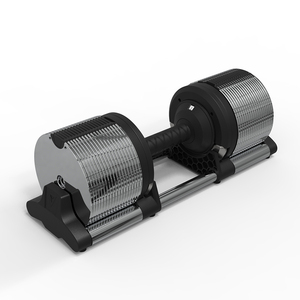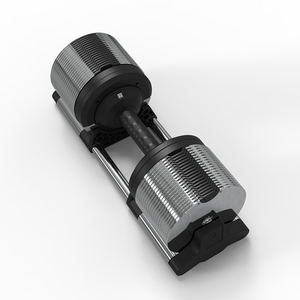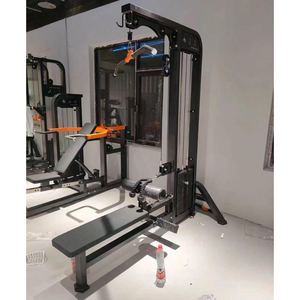
All categories
Featured selections
Trade Assurance
Buyer Central
Help Center
Get the app
Become a supplier

(527 products available)












































In the realm of fitness and body building, ensuring personal safety during workouts is paramount. This is where low intensity weight lifting becomes an essential component of any fitness regimen. These products are designed to provide protection and support, minimizing the risk of injury while optimizing performance. With the increasing popularity of fitness activities, the demand for effective low intensity weight lifting has surged, leading to innovations that cater to diverse needs and preferences. As users strive to achieve their fitness goals, integrating low intensity weight lifting into their routine can significantly enhance their experience and outcomes.
There is a wide array of low intensity weight lifting available to cater to different fitness activities and levels. Common types include wrist wraps, knee sleeves, and lifting belts, each serving a specific purpose. Wrist wraps offer support during weightlifting, reducing strain on the wrists. Knee sleeves provide compression and stability, ideal for activities such as running and squats. Lifting belts are designed to protect the lower back by providing support and maintaining proper posture during heavy lifts. These low intensity weight lifting are tailored to specific needs, ensuring users can perform exercises safely and effectively.
low intensity weight lifting are engineered to enhance safety and performance by offering protection and support. Their primary function is to minimize the risk of injury by stabilizing joints and muscles during strenuous activities. Features such as adjustable straps, breathable materials, and ergonomic designs contribute to their effectiveness. Adjustable straps ensure a snug fit, accommodating various body sizes and shapes. Breathable materials enhance comfort by preventing overheating and moisture buildup. Ergonomic designs align with the body's natural movements, providing optimal support without hindering mobility. The integration of these features into low intensity weight lifting ensures users can focus on their workouts without compromising safety.
The production of low intensity weight lifting involves the use of high-quality materials designed to withstand rigorous use while providing comfort and support. Common materials include neoprene, elastic fabrics, and reinforced stitching. Neoprene is favored for its durability and flexibility, making it ideal for compression-based products like knee sleeves and wrist wraps. Elastic fabrics offer stretchability and support, crucial for products that need to accommodate dynamic movements. Reinforced stitching ensures longevity, allowing low intensity weight lifting to maintain their integrity through repeated use. As technology advances, manufacturers are exploring innovative materials that enhance performance while prioritizing user comfort and sustainability.
To maximize the benefits of low intensity weight lifting, users must understand how to use them correctly. Selecting the appropriate product based on the specific activity and individual needs is crucial. For instance, using wrist wraps during heavy lifting sessions can prevent wrist strain. Knee sleeves should be worn during activities that place stress on the knees, such as running or jumping. Proper fitting is essential to ensure effectiveness; low intensity weight lifting should be snug but not restrictive, allowing for natural movement. Regular maintenance, such as cleaning and inspecting for wear and tear, is necessary to prolong their lifespan and maintain performance. Educating users on the correct use of low intensity weight lifting can significantly enhance their safety and workout efficiency.
When selecting low intensity weight lifting for your fitness routine, it's essential to consider several factors to ensure optimal protection and performance. Firstly, assess the specific needs of your workout regimen. For instance, if you're involved in heavy weightlifting, wrist wraps and lifting belts might be more pertinent. Conversely, for running or high-impact sports, knee sleeves could be more appropriate. Understanding the type of exercise will guide you in choosing low intensity weight lifting that aligns with your safety requirements.
Another critical aspect is the fit and comfort of the low intensity weight lifting. Proper fitting ensures that the product provides the necessary support without restricting movement. It's advisable to try different sizes or adjustable options to find the perfect fit. Furthermore, consider the material of the low intensity weight lifting; breathable and moisture-wicking materials can enhance comfort, especially during prolonged workouts. A well-fitted and comfortable low intensity weight lifting can significantly improve your exercise experience.
Durability is also a key consideration when choosing low intensity weight lifting. Products made with high-quality materials and reinforced stitching tend to last longer, providing consistent support over time. Evaluate the manufacturer's reputation and user reviews to gauge the product's longevity. Investing in durable low intensity weight lifting ensures that you have reliable protection for your fitness journey.
Lastly, consider any additional features that might enhance the functionality of the low intensity weight lifting. Some products offer extra padding, customizable straps, or even integrated technology for tracking performance. These features can add value and convenience, making your fitness safety products more versatile and effective. By carefully considering these factors, you can select low intensity weight lifting that best suits your needs and enhances your overall workout safety.
Choosing the correct size for your low intensity weight lifting is crucial for effectiveness and comfort. Most products come with sizing charts provided by manufacturers. Measure the relevant body part, such as the wrist or knee, and compare it to the chart. Consider trying on different sizes if possible to ensure a snug fit that does not restrict movement.
Yes, using low intensity weight lifting can enhance your performance by providing the necessary support and reducing the risk of injury. When your body is adequately supported, you can focus more on your form and technique, which can lead to better results and improved performance over time.
Not all exercises require low intensity weight lifting. It's essential to assess the demands of your workout and your personal needs. High-impact or heavy-load exercises typically benefit more from additional support. However, for low-impact activities, such as yoga or Pilates, low intensity weight lifting might not be necessary unless you have specific support needs.
The lifespan of low intensity weight lifting depends on the frequency of use and the intensity of your workouts. Regularly inspect your products for signs of wear and tear, such as fraying or loss of elasticity. On average, you might consider replacing them every six months to a year, but this can vary based on individual usage patterns.
Most low intensity weight lifting can be washed to maintain hygiene and prolong their lifespan. It's best to follow the manufacturer's care instructions, but generally, hand washing with mild detergent and air drying is recommended. Avoid using bleach or high heat, as these can damage the materials.